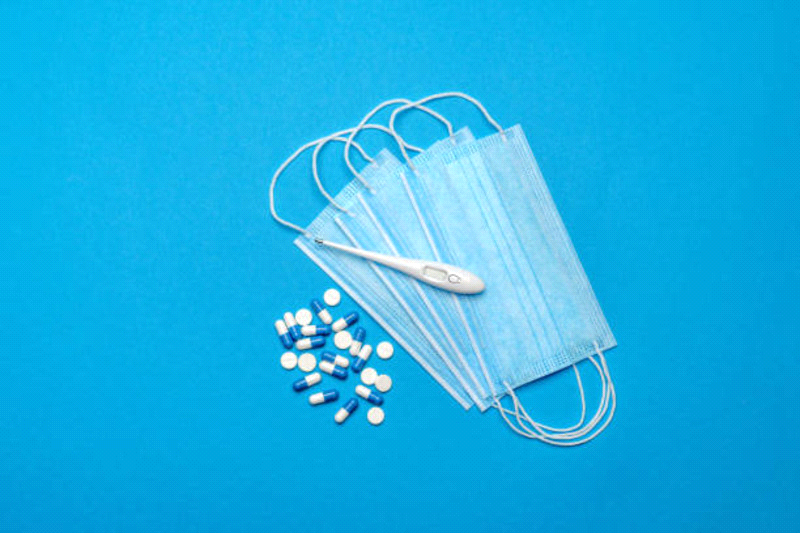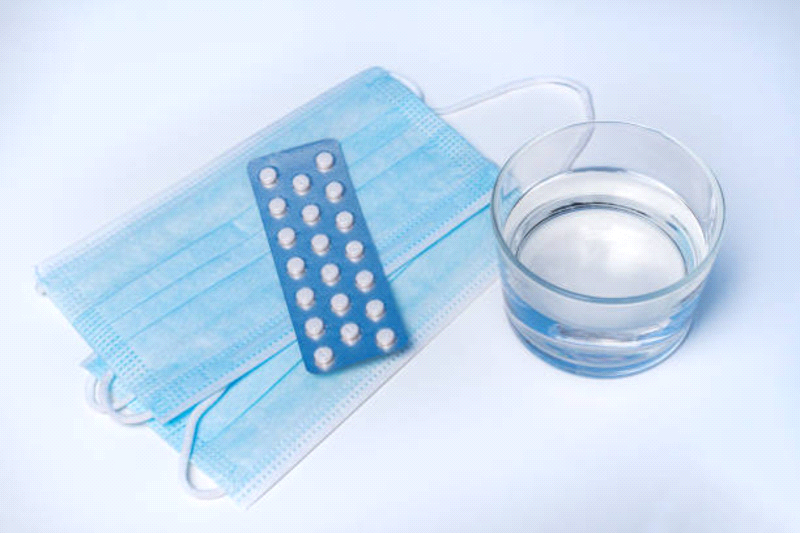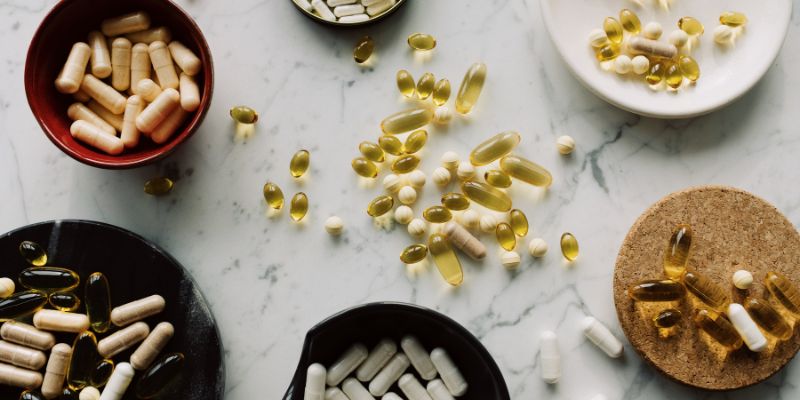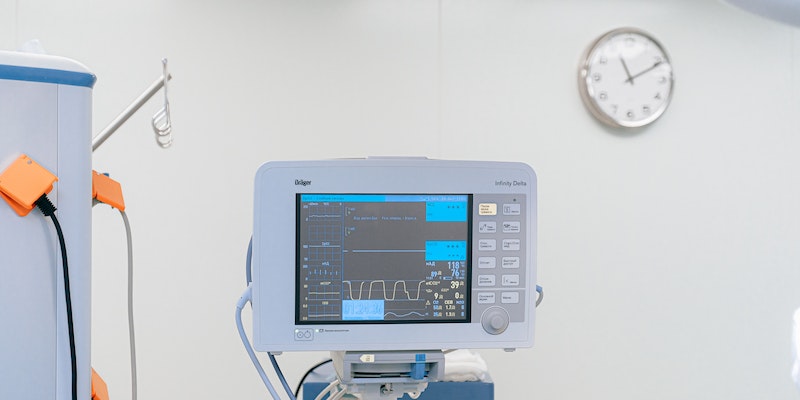Are you looking for a natural way to improve the look and feel of your skin? If you're tired of spending money on expensive forms of skin care, it's time to try something different. Aspirin face masks are becoming increasingly popular for those in search of a safe, affordable alternative that still promises dramatic results. But before you start using an aspirin-based mask on your skin, take a moment to learn more about its effects and whether it is truly safe for use. In this blog post, we will be discussing the benefits and potential risks associated with an aspirin face mask; providing important information so you can make an informed decision about what’s best for your skin health!
The Science behind Aspirin

You know aspirin, right? That little pill we take for pain relief and inflammation? But have you ever wondered how it actually works in our bodies?
What Is Aspirin?
At its core, aspirin is a salicylate drug derived from the bark of willow trees. It's been a trusted companion for those seeking relief from various ailments for well over a century. But what sets aspirin apart from the countless other pain relievers on the market?
Inhibiting Prostaglandin Production
Aspirin works by inhibiting the production of prostaglandins, which are molecules that play a role in pain and inflammation. When tissues are damaged, enzymes convert arachidonic acid into prostaglandins, triggering pain and inflammation. Aspirin disrupts this process by acetylating the enzyme cyclooxygenase, rendering it inactive and reducing prostaglandin production. This alleviates pain and reduces inflammation.
Aspirin and Skin
Now that we've unraveled the pharmacological magic of aspirin let's explore its intriguing interaction with our skin.
Exfoliation with Beta-Hydroxy Acid (BHA)
Aspirin's BHA content is a standout in skincare. Beta-hydroxy acid is a superstar at exfoliating, penetrating deeper into pores than its counterpart AHA. This makes it highly effective at unclogging pores and removing dead skin cells.neath.
Imagine your skin as a canvas. Over time, debris, excess oil, and dead skin cells dull your complexion. BHA acts as an artistic brush, sweeping away impurities, revealing a fresher, radiant canvas.
Acne Treatment Potential
The ability of BHA to penetrate pores also makes aspirin a popular choice among those seeking an acne treatment solution. Acne often begins with the clogging of hair follicles due to a combination of dead skin cells and sebum. Aspirin's BHA content can help clear out this debris and oil, potentially reducing breakouts.
Are Aspirin Face Masks Safe?

Despite aspirin's potential skin-beneficial properties, some may wonder if applying it directly to the face is a wise decision. The truth is, like anything else related to skincare, this isn't a one size fits all solution.
Potential Benefits
While aspirin face masks offer potential benefits, it's essential to consider the safety aspects:
- Exfoliation: As mentioned earlier, aspirin can exfoliate the skin. However, excessive exfoliation can lead to dryness and irritation. It's crucial to use these masks sparingly, typically no more than once a week.
- Skin Sensitivity: Individuals with sensitive skin may experience redness or burning sensations when using aspirin masks. It's advisable to do a patch test before applying it to your entire face.
Precautions
- Avoid If Allergic: If you are allergic to aspirin or salicylates, do not use aspirin masks. Allergic reactions can be severe and include hives, swelling, and difficulty breathing.
- Pregnancy and Nursing: Pregnant or nursing individuals should consult a healthcare professional before using aspirin topically, as there is limited research on its safety in these situations.
DIY Aspirin Face Mask Recipe
Creating your very own DIY aspirin face mask is like giving your skin a revitalizing spa treatment at home. This simple yet effective skincare hack can help you achieve a fresh and radiant complexion without breaking the bank. Let's dive into this unique and engaging DIY aspirin face mask recipe.
Ingredients You'll Need:
- 2-3 aspirin tablets
- A teaspoon of water or honey
Instructions:
- Perfectly Crushed: Begin by crushing the aspirin tablets until they transform into a silky, fine powder. You can use a mortar and pestle or put the tablets in a sealed plastic bag and roll over them with a heavy object. The finer the powder, the better the results!
- Blend and Mix: Transfer the powdered aspirin into a clean bowl and let your creativity shine. Add either a teaspoon of water or honey to the mix. Water works great for a basic mask, while honey adds natural sweetness and extra moisturization. Stir until you achieve a smooth, paste-like consistency.
- Time to Apply: Give your face a refreshing cleanse using your trusty cleanser to banish makeup, dirt, and impurities. Afterwards, softly blot your face dry using a fresh towel, leaving it slightly moist. This preps your skin for the ultimate mask experience, ensuring it sticks like a charm!
- Magic Mask: Using your fingertips or a soft brush, apply the aspirin mask evenly across your face, avoiding the delicate eye area. You may feel a slight tingle; that's just the aspirin working its magic!
- Relax and Rejuvenate: Now, it's time to unwind. Leave the mask on for about 10 to 15 minutes. You can use this time to meditate, read a short article, or simply enjoy a moment of tranquility.
- Rinse and Glow: After the designated time has elapsed, rinse off the mask using lukewarm water. Massage your skin in gentle circular motions while washing off the mask to enhance exfoliation.
- Admire the Radiance: Here it is! Witness your renewed and glowing complexion. Complete your skincare routine by applying your preferred moisturizer to seal in all the benefits.
Conclusion:
Aspirin face masks can offer several benefits for your skin, including exfoliation and potential acne treatment. Safety should always be a priority. If you decide to incorporate aspirin masks into your skincare routine, do so with caution and in moderation. If you experience any adverse reactions, discontinue use immediately.




